Wednesday, April 15, 2009
Judit Polgar/Garry Kasparov, Linares 1994
Part 2. Part 1, see prior post.
More from Linares! Linares! A Journey Into the Heart of Chess, by Dirk Jan ten Geuzendam, from "La Nina:"
Judit is not convinced, even though she has the paralysing feeling that there is nothing she can do about it. The next day, …she pours out her heart to her sister, Sofia [who has arrived in Linares for a brief visit]. At supper, she says she is almost certain that Kasparov released the Knight. From the faces of Vishy Anand and the American grandmaster Alex Serzer, who are having dinner with the sisters, she can tell that they don’t want to contradict her but that they can’t even begin to believe her. Sofia, at least, shows some understanding. Why don’t you just ask him again?", she suggests. Judit shakes her head and argues that it is no use. "He’s only got to say that it’s not true and who’ll believe my story then? I can see it. How very unsporting of such a young girl. You can tell she is very young. She is in time trouble, she is lost and tries such a cheap trick. And against Kasparov too, who would be the last to permit himself such a thing. In plain view of the arbiter, of a whole crowd, and, as if that were not enough, of a camera crew as well."
She had thought of the camera crew before, but in the wake of the game she was so downcast that she had mainly been reasoning what little chance there was of it having had its equipment running at the right moment, and from the right angle too, for it to shed any light on the matter. Still, she mentions the camera crew when Carlos Falcon catches a fragment of their conversation and comes over to ask if there is a problem. Judit doesn’t beat about the bush: "I have the strong impression that Kasparov released the Knight after he played it to c5. But I’m not certain. Would it be possible for me to see the footage?" Falcon doesn’t hesitate. Helpfully and correctly, he replies that it doesn’t seem to be a problem at all. He will see what he can do.
It was a problem. If Carlos Falcon thought for a minute that he could settle the matter smoothly, he was sadly mistaken. It turned out the next day that the video tape was not available, because the camera crew had unexpectedly returned to Madrid And also, the chief arbiter himself suddenly began to hold a very strong view of the matter. That night, Carlos Falcon added a short statement to his daily round report in an effort to squash any rumours that an irregularity had taken place in the game between Judit Polgar and Garry Kasparov. For whoever might still think so, he wanted to stress once again this was not the case.
If these interventions – in which Rentero had unmistakably had a hand – were meant to put a stop to the various suspicions and insinuations, they couldn’t have had a more adverse effect. Everyone now began to have an opinion about the incident. The call to have the camera crew return from Madrid with their tape grew louder by the hour. The Knight that Kasparov did or did not let go became the only subject of discussion at the Hotel Anibal. …
The uproar at the Hotel Anibal only grew worse when news began to spread that the game between Polgar and Kasparov had been filmed in its entirety, and that it was clearly visible that Kasparov had released the Knight for a fraction of a second. All uncertainty would come to an end, because a car with the all-revealing video tape on board was on its way from Madrid to Linares. It had taken the film makers a few busy days to find the relevant footage and edit the tape. To all this excitement, Rentero reacted once again with a letter. A lettter which highly surprised me. Shortly before it was made public, Mauricio told me that Rentero himself had been on the telephone to the film people in Madrid. It was true, he told Mauricio, Kasparov had illegally taken back his move. But this information could not be reconciled with Rentero’s letter. What Rentero was playing at was a mystery to me. It seemed that he was trying to vindicate Kasparov but if so, what was his intention with this letter? Had it escaped him that Kasparov had called on the press to make sure that the video tape turned up if it really existed? And what had been discussed in the private meeting that Kasparov had demanded with Rentero to make clear that he was taking the matter very seriously indeed?
Rentero’s letter, written in a peculiar kind of English, raised more questions than it answered. First, it summarized the tournament director’s own version of what had taken place and after that, it gave his verdict:
"Luis Rentero, Technical Director of the Chess Tournament ‘Ciudad de Linares,’ informs of the press media that the comments concerning the 5th round game between Mrs. J. Polgar and Mr. G. Kasparov occurred in the following way: ‘I was close to the mural of said game, and right when Mr. Kasparov moved his knight to the c5 square to leave it there for a few seconds, without releasing his fingers from the piece, he returned the knight back to its original square, d7, from where he moved it to square f8, I turned to the referee saying, Carlos, whereupon he answered: He has not released the piece!’
"The referee has the main responsibility in the Playing Hall and his decisions are accepted, not only by me, but also by the Organizing Committee of this Tournament.
"Consequently, as responsible of this Tournament and in the name of the Organizing Committee I do not admit other versions of the referred fact and we will not permit speculations or comments of bad taste towards the Organizing Committee since they have accepted the referee decision, as main responsible of the Playing Hall.
"Having information that on Tusday, March 15th, a video of this case is intended to be projected, I would like to inform that neither in the Tournament Hall, nor at the Anibal hotel, nobody will be allowed to make such projection.
"To me, as Technical Director of the Tournament, Mr. Kasparov is an exemplary sportsman, that has not required of any tricks to be three years the winner and two year second of this world renowned Chess Tournament.
"The tournament has been, is and will be a good faith Tournament and we will not permit that nobody spreads unfounded rumours, that all they do is to damage the reputation of the players and even of this Tournament."
If Rentero had thought to get Kasparov off the hook with this letter, he only achieved the opposite. Everyone was now dying to see the video and the arrival of the car from Madrid was eagerly awaited. At the same time, tension also mounted over the question whether the video might be shown anywhere in the hotel at all. …
…[N]ot much was done to prevent the video from being shown once I had arrived. Thronging the hotel room of one of the reporters and craning their necks, a whole crowd were looking time after time at Kasparov moving his Knight to c5 in slow motion and, yes, releasing his fingers from the piece for a very short moment. One of the viewers was Carlos Falcon. Even in advance of the closing ceremony, he had a statement go out in which he frankly admitted that he had been wrong. For the record he stated: "Played in slow motion, the video clearly shows that Kasparov released the piece. However, as he was shielding the piece with his hand, this was impossible for me to see form the position where I was standing."
Several years on, Judit Polgar and I reminisced about the heroic feat she performed on the day of departure. In the middle of the lobby, she went to stand in Kasparov’s way. He had been hiding himself in his suite most of the time but now he was legging it at high speed towards the exit to take a walk outside. Straight out, she asked him: "How could you do this to me?"
Judit laughed when she thought back to the mettle she showed as a seventeen-year-old in calling the world champion to account. It had been brave but not without consequences. "Yes, and then he didn’t speak a word to me for three whole years."
Something came back to my mind which she perhaps didn’t even know.
"I remember he wasn’t quite sure himself. When he came to complain to me in the restaurant, I asked him what he thought had happened himself. Did he let the Knight go or didn’t he? He hesitated and said he wasn’t quite sure. It was just a matter of a split second. But he didn’t think so."
It was no surprise to Judit. "That’s what I’ve always said. I was convinced he must have felt it. When you’ve played chess for so long, you feel this. But he was confused, because he didn’t know what to do when there was no reaction [from me.] That’s why he sat thinking for three minutes. Not about what move to make but about what to do. And then he took his move back."
"And felt guilty."
Judit kept the images running through her mind for a while before answering: "You know, the problem was that no one was any the better for it. It was bad for Garry’s reputation. And it spoiled the tournament for both of us. Everyone kept calling me about the scandal and I don’t like scandals at all. I should have gone about my games more calmly after that but I was too eager to prove all sorts of things."
******************************************************************************
Dear Anonymous Poster who asked me to provide more information about the "infamous Knight" incident, I hope you have enjoyed what I posted here and in the prior post. Dirk Geuzendam was present at Linares when this event occurred; he spoke with Judit Polgar about it, he spoke with Garry Kasparov about it; he spoke with other people about it, and what I have written is directly quoted from his most excellent book about the various Linares tournaments that have been held over the years.
Subscribe to:
Post Comments (Atom)





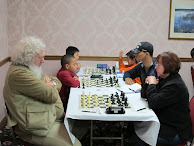

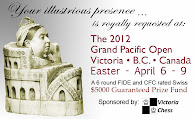

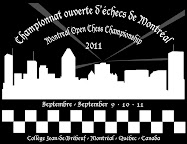










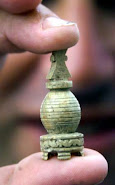











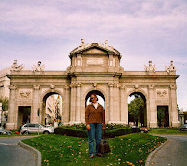


2 comments:
Thanks so much for blogging this story!
People seem very hung up on this incident. While I greatly admire Judit Polgar, it must be said, free from the clutches of evil political correctness, that Judit is nowhere near the league of Kasparov, he is the greatest chess player that ever lived. I believe focusing on this incident is doing women's chess a disservice, it's conveying the message that it's ultra contraversial because it's a woman that it happened too, as if she's a handicapped player. People, women especially need to move past this and treat chess players as chess players, not men or women.
Post a Comment